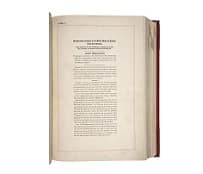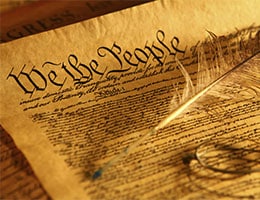 The first meaning of the term amendment that the Royal Spanish Academy ( RAE ) mentions in its dictionary refers to the act and result of amending . This verb (amend), for its part, refers to repairing a fault or solving a breakdown.
The first meaning of the term amendment that the Royal Spanish Academy ( RAE ) mentions in its dictionary refers to the act and result of amending . This verb (amend), for its part, refers to repairing a fault or solving a breakdown.
The most common use of the concept is linked to a proposal that seeks to modify an official document . This is usually a proposal to replace or alter a law or bill , although it may also address a change to an international treaty or even a constitution .
An amendment is usually processed or treated in the same way as the document it seeks to modify. In this framework, the amendment can be approved or rejected: when the amendment is approved, the change to the text that it sought to amend is specified. This means that the amended text has the same regulatory status as the previous one.
The United States Constitution , for example, incorporated various amendments throughout history . These amendments, to put them into effect, were approved by the US Congress .
The Second Amendment , proposed in 1789 and approved in 1791 , is one of the best known. This amendment recognizes in the US Constitution the right of all citizens to have weapons .
In the field of agriculture , substances that are applied to the land to increase its productivity and improve its properties are known as amendments. The amendments can be fertilizers or products that help promote water retention or optimize pH, to name two possibilities.
The first five amendments to the Constitution of the United States of America
Amendment I
 Congress cannot legislate with reference to the imposition of a religion or prohibit any citizen from freely exercising his or her religion. Nor can it hinder free expression (this includes the work of journalists) or restrict the right of people to assemble in peace to demand that the government redress certain grievances.
Congress cannot legislate with reference to the imposition of a religion or prohibit any citizen from freely exercising his or her religion. Nor can it hinder free expression (this includes the work of journalists) or restrict the right of people to assemble in peace to demand that the government redress certain grievances.
Amendment II
Since the State needs a properly ordered militia to protect its own security, citizens have the right to keep and bear arms .
Amendment III
During a time of peace, soldiers do not have the right to stay in a private house without the owner's permission; In time of war, you must follow the instructions prescribed by law.
Amendment IV
The people have the right to security , and this includes respect for their home, their documents and effects against any arbitrary seizure. This right is inviolable and will only be overlooked if there is probable cause that has been corroborated by means of a solemn Declaration or Oath, which must describe in great detail the site that will be searched and the people or objects that will be detained or seized. .
Amendment V
No individual may be detained for a crime punishable by the death penalty without an indictment or indictment by a Grand Jury, except in situations involving the Militia, Naval Forces, or land vehicles, if they are in full service in time of war. Similarly, the same subject cannot be subjected twice to the danger of receiving physical harm or even losing his life for the same crime.
The V Amendment also indicates that no one can be forced to testify against himself in a criminal trial, nor deprived of his liberty, his property or his life without having been subjected to said judicial process. Another right that it guarantees to the American people is to maintain their private property unless they are fairly compensated, as long as the use given to it is for the purpose of protecting the public good.
